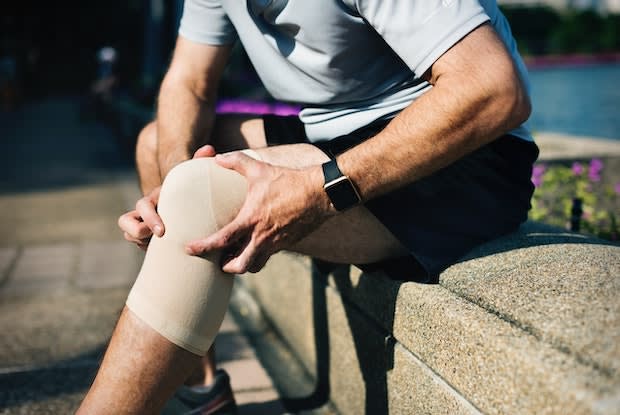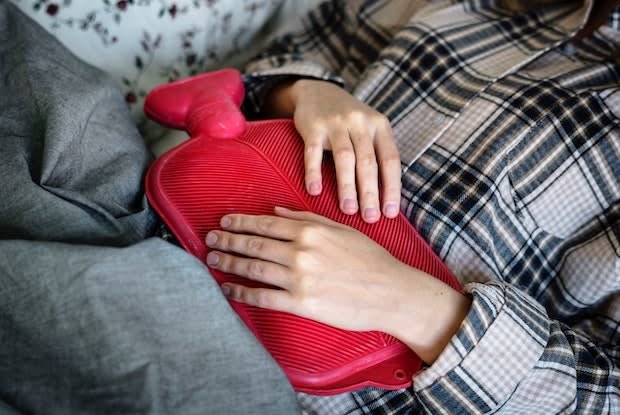Table of Contents
b. What precautions must I take when combining Eliquis and NSAIDs?
IV. Alternatives to Pharmaceutical Painkillers
Many patients using Eliquis as a blood thinner also have other health conditions that warrant pain relief medicine, whether it’s the chronic pain associated with arthritis or the occasional tension headache. Eliquis is now available in generic form through an online Canadian pharmacy.

Save Up To 80% Off Brand & Generic Eliquis (Apixaban) at RxConnected
Experience unparalleled savings on both generic and brand-name Eliquis when you shop at RxConnected. As a certified Canadian online pharmacy, we are committed to delivering top-quality medication right to your doorstep. With hundreds of glowing reviews, our satisfied customers are a testament to our exceptional service and unbeatable prices.
Learn MoreRxConnected sources its medications from countries where generic Eliquis is already available, so Americans can now have access to this traditionally expensive drug. But not all painkillers mix well with Eliquis. In this article, we’ll explore what pain relief treatments are suitable for Eliquis patients.

Eliquis and NSAIDs
Most of us have taken an NSAID at some point. NSAIDs, short for non-steroidal anti-inflammatory drugs, are very popular painkillers that can be bought over-the-counter at most American pharmacies.
What are NSAIDs?
Non-steroidal anti-inflammatory drugs are popular for the relief of minor to moderate pain like headaches and menstrual cramps. NSAIDs can also be used to lessen swelling, relieve muscle sprains and strains, and treat fever.
Popular NSAIDs include Advil (generic name: ibuprofen) and naproxen (Aleve). [1] Tylenol (acetaminophen) is not an NSAID.
Get savings updates for Eliquis
What precautions must I take when combining Eliquis and NSAIDs?
According to the U.S. National Library of Medicine, patients taking Eliquis should alert their doctor if they also want to take NSAIDs. You should be aware that many NSAIDs are an included ingredient in other medications. This may not be immediately obvious, so make sure when you get a new medicine to check the full list of ingredients on the label. [2]
If a patient needs to take an NSAID, experts recommend taking the lowest dose possible. This is because NSAIDs influence how platelets (clotting mechanisms in your blood) work. This can be dangerous because Eliquis is a blood thinner that may increase your risk of bleeding. Therefore, Eliquis mixed with NSAIDs can further increase your risk of bleeding. [3]
Acetaminophen (which also goes by the names paracetamol and Tylenol) is stated to be safe to take alongside Eliquis, according to the U.K. National Health Service. [4] Now, acetaminophen does not fight inflammation, but it can help with fevers and headaches. It is often recommended for arthritis sufferers. It is safer for children, though taking too much acetaminophen can be harmful to the liver. [5] This is true for adults as well. Prescribed acetaminophen such as Tylenol 3 may be combined with a mild narcotic like codeine. Opioids are very strong painkillers. This family of drugs includes prescription morphine, oxycodone, and codeine, as well as illegal drugs like heroin. [6] There is little information available about the potential risks of taking Eliquis along with an opioid painkiller. However, always tell your doctor what other medications you take. Remember, opioids are powerful medications, and use of them should be carefully monitored by a health-care professional. One way to reduce the risk of a bad painkiller and Eliquis interaction is to avoid using painkillers. Indeed, for mild to moderate pain, non-pharmaceutical therapies like massage therapy and heat and cold therapy can work just as well. The following are drug-free treatments that are generally believed to be safe. But as an Eliquis patient, you should absolutely talk to your doctor first before trying a drug-free treatment. Depending on your unique physical condition, certain therapies can be fitting or dangerous. Using heat and cold is an easy and cost-effective way to relieve pain. Heating pads and warm baths can help relieve joint and muscle pain. Heat works because it boosts blood circulation, increasing the efficiency of nutrients reaching your joints and muscles. Cold therapy is a good natural remedy for acute pain because it constricts blood vessels, slowing circulation down. It is also good at easing swelling and numbing the sensation of pain. [7] Of course, if you are post-surgical or procedural, you should check with your doctor before using any additional therapies.
Patients with mobility issues who take Eliquis may benefit from physical therapy. Physical therapy (PT) is a form of treatment that aims to improve the body’s ability to move. A physical therapist can help patients improve joint function, teach them correct posture, or perform certain helpful exercises. PT may be especially useful for arthritic patients. [8] Massage therapy is defined as manipulating soft body tissue, and it can feel very good! There are many different types of massage, from Swedish or classical massage to Shiatsu and Thai massage. The National Center for Complementary and Integrative Health suggests there are potential benefits to using massage therapy to relieve pain conditions. [9] When it comes to pain, we all want to do everything possible to relieve it. However, always talk to your doctor first before trying a new method to relieve pain, whether pharmaceutical or natural. Over-the-counter acetaminophen and natural therapies can be used as painkillers with Eliquis. Eliquis is generally a safe medication, but it does increase your risk of bleeding. This can be very dangerous, so a few precautionary moves can go a long way. Visit RxConnected to learn more and start ordering today. DISCLAIMER: The content in this article is intended for informational purposes only. This website does not provide medical advice. In all circumstances, you should always seek the advice of your physician and/or other qualified health professionals(s) for drug, medical condition, or treatment advice. The content provided on this website is not a substitute for professional medical advice, diagnosis or treatment.
Eliquis and Acetaminophen
Eliquis and Opioids

Alternatives to Pharmaceutical Painkillers
Heat and Cold Therapy
Physical Therapy
Massage Therapy
The Bottom Line

